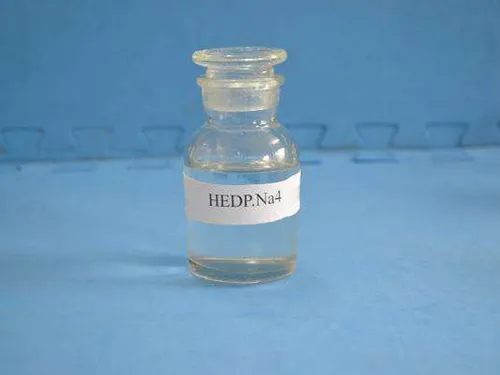Revolutionizing Agriculture with Organic Phosphonate Solutions
Sustainable agriculture has become a global priority as the demand for food increases while resources dwindle. Innovations like organic phosphonate compounds, such as PBTC tricarboxylic acid, PBTCA·Na4, and disodium salt derivatives, are transforming how fertilizers and water management systems work. These compounds contribute to efficient nutrient delivery, soil improvement, and sustainable crop production.

Organic Phosphonate: A Game-Changer in Modern Farming
Organic phosphonate solutions play a critical role in modern agriculture by improving the efficiency of fertilizers and reducing nutrient loss. Compounds like PBTC tricarboxylic acid and PBTCA·Na4 are particularly effective at chelating essential metal ions, preventing nutrient precipitation in soil and irrigation systems.
By ensuring that plants receive essential nutrients in their most bioavailable forms, organophosphonates enhance plant health and productivity. These compounds also reduce the need for excessive fertilizer use, minimizing environmental runoff and promoting sustainable farming practices.
The Science Behind PBTCA·Na4 and Its Role in Agriculture
PBTCA·Na4, or the tetrasodium salt of PBTC tricarboxylic acid, is a versatile compound widely used in agricultural applications. Its unique chemical structure allows it to stabilize calcium, magnesium, and other scaling ions commonly found in irrigation water. This prevents the clogging of drip systems and sprinklers, ensuring consistent water delivery to crops.
In addition to scale prevention, PBTCA·Na4 enhances the solubility of trace elements like iron and zinc, which are critical for plant development. By improving nutrient availability, this organic phosphonate ensures robust growth and higher yields, even in challenging soil conditions.
Disodium Salt Compounds: Enhancing Soil Health
Disodium salt formulations of organophosphonates are another vital tool for sustainable agriculture. These compounds are designed to work in synergy with fertilizers, improving their uptake by plants and reducing nutrient waste.
For instance, disodium salt derivatives help maintain the pH balance of soil and water, creating an optimal environment for crop growth. They also prevent the formation of insoluble nutrient compounds, ensuring that essential minerals remain available to plants.
In addition, organophosphonates with disodium salt bases exhibit excellent biodegradability, making them an environmentally friendly option for long-term agricultural use.
Applications of PBTC Tricarboxylic Acid in Irrigation Systems
Efficient water management is essential for sustainable farming, and PBTC tricarboxylic acid has become a key component in modern irrigation systems. Its ability to prevent scale buildup in pipes and equipment ensures that water flows freely, even in hard water conditions.
Moreover, PBTC tricarboxylic acid is effective at controlling biofouling, a common issue in agricultural water systems. By inhibiting the growth of algae and bacteria, this organic phosphonate reduces maintenance costs and ensures reliable irrigation for crops.
Farmers who integrate PBTC tricarboxylic acid into their irrigation systems benefit from reduced equipment downtime, improved water efficiency, and enhanced crop quality.
The Broader Impact of Organophosphonates on Sustainable Agriculture
Beyond their immediate benefits, organophosphonates contribute to the long-term sustainability of agriculture. By improving nutrient efficiency and reducing water waste, these compounds help farmers achieve higher productivity with fewer resources.
Organic phosphonates also support soil conservation by preventing the depletion of essential minerals and maintaining soil structure. This is particularly important in areas with intensive farming practices, where soil degradation is a significant concern.
Furthermore, the environmental compatibility of organophosphonates makes them a preferred choice for eco-conscious farmers. Their low toxicity and biodegradability ensure that their use does not harm surrounding ecosystems, supporting a harmonious balance between agriculture and nature.
The integration of organic phosphonate solutions, including PBTC tricarboxylic acid, PBTCA·Na4, and disodium salt formulations, is revolutionizing agriculture. These compounds offer practical and sustainable solutions to some of the most pressing challenges in farming, from nutrient efficiency to water management. As the world seeks to feed a growing population while preserving natural resources, organophosphonates are proving to be indispensable allies. Their ability to enhance productivity, reduce waste, and protect the environment makes them a cornerstone of sustainable agricultural practices. Farmers embracing these innovative technologies are not only improving their yields but also contributing to a more sustainable future for all.
-
Understanding Polycarboxylic Acids: Properties, Applications, and Future PotentialNewsJul.28,2025
-
Scale Inhibitor Explained: How to Protect Your System from Limescale and Hard Water DamageNewsJul.28,2025
-
Scale and Corrosion Inhibitors: Essential Chemicals for Industrial Water System ProtectionNewsJul.28,2025
-
Polyaspartic Acid: A Biodegradable Polymer for Sustainable ChemistryNewsJul.28,2025
-
Isothiazolinones: A Versatile Antimicrobial Class with Industrial Power and Regulatory ChallengesNewsJul.28,2025
-
A Deep Dive into 2-Phosphonobutane-1,2,4-Tricarboxylic Acid (PBTC)NewsJul.28,2025





